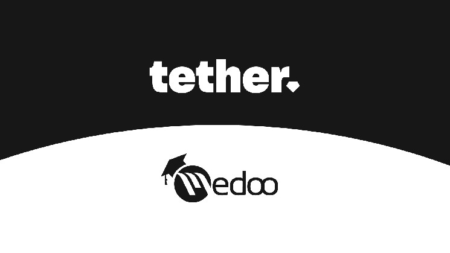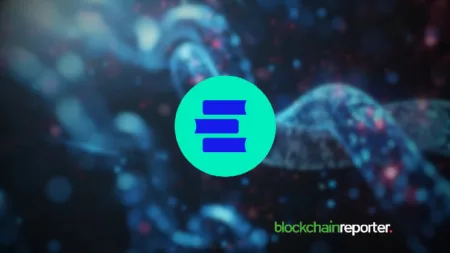- B² Network’s integration of Chainlink CCIP enhances cross-chain interoperability and improves liquidity for BTCFi projects.
- Chainlink CCIP enables seamless token transfers, reducing inefficiencies and enabling programmable cross-chain transactions.
B² Network has intergrated Chainlink’s Cross-Chain Interoperability Protocol (CCIP) as its official cross-chain infrastructure, marking a significant advancement in cross-chain interoperability. Particularly within Bitcoin-centric decentralized finance (BTCFi), B2 Network improves its capacity to provide flawless and safe asset transfers across blockchain networks by including CCIP.
Given CCIP’s architecture is meant to enable asset interoperability and enhance liquidity across chains, this action fits B2’s aim of building a more linked BTCFi ecosystem.
.@BSquaredNetwork is integrating #Chainlink CCIP as its canonical cross-chain infrastructure.
How CCIP enables developers to create novel cross-chain apps on B² Network that expand the reach of BTCFi ⬇️ #RoadToSmartConhttps://t.co/nxRAEIoDbf pic.twitter.com/cuGKL8TsBC
— Chainlink (@chainlink) October 30, 2024
CCIP’s Canonical Bridges Streamline Liquidity and Lower Cross-Chain Costs for B² Network
By means of this integration, CCIP helps B² Network to solve shared cross-chain technological hurdles such token fragmentation and liquidity problems.
By allowing B² to support a single, uniform token across several chains, Canonical Bridges driven by CCIP help to concentrate liquidity in one location and therefore lower the inefficiencies of having several wrapped copies of the same asset.
Since consumers no longer have to engage with several versions of a token or bridge through costly intermediaries, this unified method not only streamlines user interactions but also reduces expenses. Rather, CCIP’s canonical bridge architecture guarantees a simpler and more reasonably priced user interface.
The benefits of this arrangement go beyond just easier token exchanges. Programmable token transfers—a capability of CCIP allowing users to include particular instructions activating when assets reach a destination chain—are introduced.
Tokens moved across chains, for example, can automatically be placed into a lending pool or other DeFi app, therefore greatly simplifying user interface with cross-chain systems.
For B2 Network, this capacity is absolutely essential since it aims to generate creative use cases inside the BTCFi market, where programmable and automated transfers can support the evolution of sophisticated DeFi projects.
Robust Security Design Ensures Safe Cross-Chain Growth for BTCFi
Furthermore, Chainlink CCIP’s strong and effective cross-chain capability fits very nicely with B²’s emphasis on preserving solid security. With Chainlink’s dedication to security shown by past high-value transactions and thorough audits, B² Network can focus user safety while growing the BTCFi network.
Security issues sometimes surface as blockchain interoperability increases; Chainlink CCIP addresses this with a track record of stability and a defense-in- depth design that greatly lowers any risks connected with cross-chain transactions.
As Layer 2 solutions become ever more crucial for scaling blockchain applications, the cooperation between B2 Network and Chainlink represents a larger trend of blockchain interoperability.
Especially, Chainlink’s most recent developments—the introduction of Data Streams on opBNB—showcase the company’s will to provide high-frequency market data and increase DeFi capabilities across blockchain environments, according to CNF.
Meanwhile, with a market cap of more than $7.6 billion, Chainlink’s native token, LINK, trades about $12.14 as of writing, up by 1.59% over the last 24 hours.
Read the full article here









